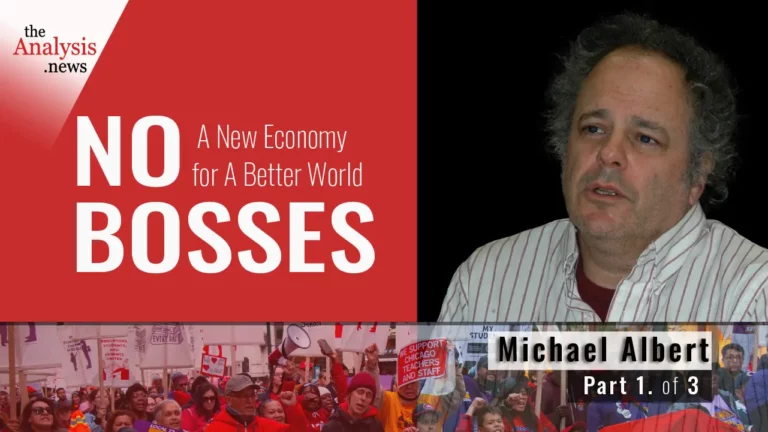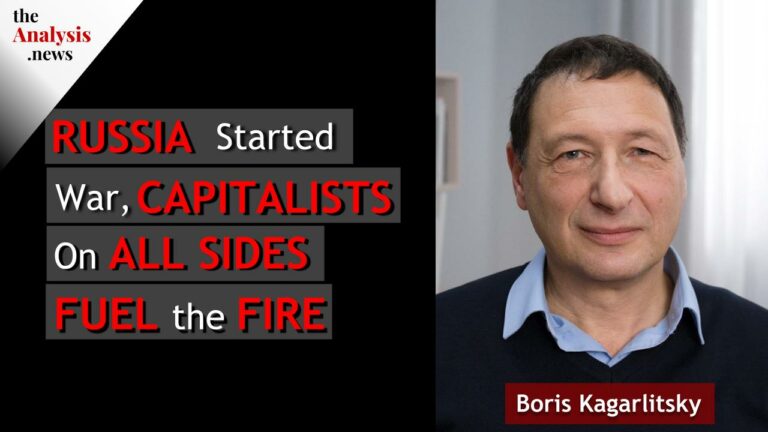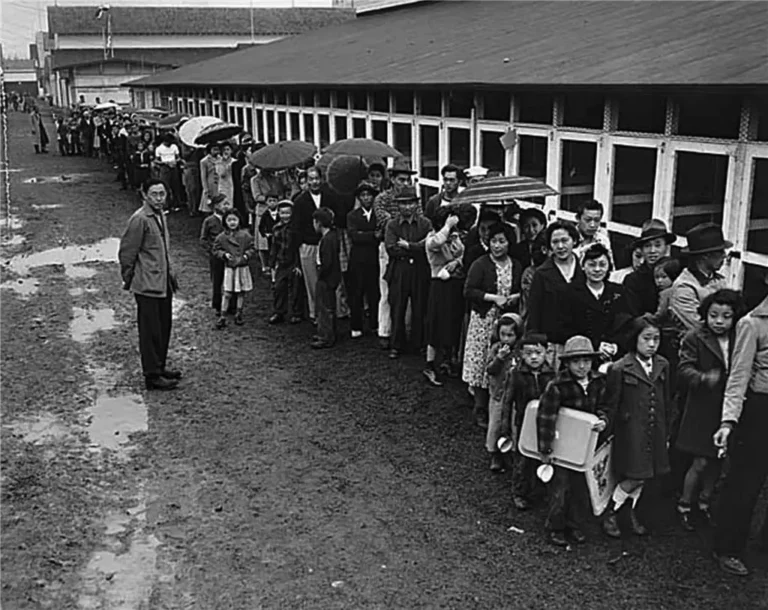The Rise of Authoritarianism in Eastern Europe – Pt 2/2 The Barricade
Four journalists from Eastern European countries analyze the rise of far-right movements, governments, and Western hypocrisy. This is a co-production between the Barricade and theAnalysis.news.
Boyan Stanislavski
There is a dictatorship which actually is not being discussed and that no one is actually outraged about, except for the handful of meaningful leftists. And we do live in circumstances of dictatorship. Dictatorship of corporations, so corporate dictatorship, or the dictatorial measures that are being applied by intelligence services, all kinds of stuff. But this is the reality of the capitalist class society where you have the dictatorship of one class over the other class. And it’s not that visible because the capitalist class, the managerial class, the bourgeoisie class, to use classical Marxist language, they own this. They own the countries. They own the states. They own the economy. They own the judiciary. They own the media. They own the army. They own the police and so on and so forth. The list is long. The fact that this dictatorship is not part of the public discourse also speaks to the weakness of the left because for the last 30 years, I can’t really see any major leftist media outlet or propaganda center come up and try to inject this sort of discourse into the public sphere. So this is also, to a certain extent, our failure. And of course, I’m not trying to blame the left for the existence of capitalism right now, but what I’m trying to say is that there are problems with authoritarian rule and with authoritarian regime which aren’t so easily detectable because they are not being discussed by the mainstream.
And I think that Bulgaria, and I want to go to Vladimir now, Bulgaria is an excellent example, because despite the fact that our authoritarianism there has been quite overt for anyone who has been there or for anyone who has actually had a closer look at how things are in Bulgaria and how there is no rule of law, how there’s widespread corruption, how Boyko Borissov has been basically something like an absolutist leader. He basically was able to manually manage every institution of the country at every level through his party, which was organized all around him, which wasn’t really a normal party. And it has never been. It was something like a Secret Service/police club. That’s what it was, really. And he was the commander of that club. And then it kind of grew into the institutional structure of the country and basically turned from this police club into a kind of corporation that was policing everything and in particular was acting against people and processes and organizations that would even remotely threaten the oligarchy model that is Boyko Borissov and his oligarchic friends managing everything and owning the economy.
Boyan Stanislavski
And so we’ve seen that, but no one really paid much attention. And I think, Vladimir, you’ve already explained it to a certain extent by pointing out that Boyko Borissov had a very cozy relationship with the democratic leader of Germany, Angela Merkel, plus with foreign investors. So you can see foreign investors and Angela Merkel, if they are OK with a certain type of authoritarianism, that’s fine. If it suits their goals, that’s fine. Then, they don’t write about it on the front page of Frankfurter Allgemeine Zeitung or whatever other mainstream media. But when we don’t like someone like Lukashenko, for example, then “Oh my God, our hearts go out” because there was a protest movement crushed last year in Belarus. But, substantially speaking, what’s the difference between a movement crushed and a movement that’s been crushed in a softer manner like in Bulgaria, because at pretty much the same time in Bulgaria and in Belarus, we had very strong and, I would say even, well-organized protests on an everyday basis or almost every day basis. And in Bulgaria, they lasted for almost half a year. Half a year, masses of people every day on the streets and crickets in the media. And it was actually the difference between that authoritarianism and the other authoritarianism when both of the movements have achieved pretty much nothing with the exception, and here I want to go to you, Vladimir, that some political organizations, some of them new, some of them pretending to be new, did emerge around the protests in Bulgaria and they are now part of the parliamentary game. But I think it has to be pointed out that had there not been the American blessing for that, it would have never happened. It’s not because the authoritarianism of Boyko Borissov was better. It’s because the Americans withdrew their support for Boyko Borissov and they started looking for a new viceroy on the ground. And had it not been for this, had it not been for the allowance from the side of the American embassy, I think it would have never happened, or at least not to such an extent where we have a party that claims to have been created on the basis of those protests last year, winning the parliamentary elections.
So please tell us, why do you think this authoritarianism came about? Because, in my opinion, one reason, in a kind of historical perspective, is that before 1989 people had obviously lived better lives than after 1989. And everyone is going to tell you this in Bulgaria, with the exception of a small group of obsessively anti-communist right wingers. But everyone understands, and this is a consensus in Bulgaria, that the transition failed totally and has failed the people and failed morally, economically, ethically, politically in every aspect. But, I think it’s logical for the people to make such a choice because they’ve lived a better life under the authoritarian regime before 1989. And then they had this allegedly democratic experiment imposed on them. And Democracy was just the decorum, because what was introduced was capitalism, not so much democracy. So they’ve had this and the results of that have been terrible. People don’t realize, particularly the American audience and the Canadian audience, the North American audience, that the Analysis appeals to mostly. I don’t think they even have the slightest idea what kind of civilizational downgrade and destitution we have been through in Bulgaria. And, now people vote again for someone with an authoritarian appeal because it’s just kind of logical. I don’t support that, but it is logical, isn’t it? What’s your take?
Vladimir Mitev
You spoke a long time, so I have plenty of issues to tackle now. First of all, one reason that this overly personal regime of Borissov has stood for a long time, obviously, is the international. And maybe its the fact that he came in politics through the internal ministry and he has this impression of somebody who can instill discipline, at least on a very physical level, let’s say even on the street, if you wish. Maybe that has been important for his partners in the West, because I guess the West needs its flows of good investment, funds, etc., to travel freely through this land, which is Bulgaria. So the territory is important and it’s important to be stable. But also I think it’s the economic reason that is an important explanation for this long standing rule of Borissov. And here I need to expand a little bit more on the issue, because we have something else in Romania. And maybe it’s like that in a number of countries in the region. Maybe it’s something which is called clientelist connections or networks. There have been a lot of cases when, for example, workers in a large factory or a firm are put by their employer to protest because the interests of the firm have been violated. And there are a number of situations in which people just perceive their economic interests in a very physical, direct way which is related to the interests of their patron. Maybe it could be the boss of the firm. It could be the boss of the party that they misaligned with. So, if I’m a Westerner and I want to change something in Bulgaria, I have to make an effort to change this social model, to have more people who are economically independent or who are, critically in their approaches to the society, not tempted to give their freedom or trust easily.
And I guess that’s one of the reasons why the regime of Borissov lasted for so long. And why did it started to unravel? Well, I guess the reason is, again, economic, especially on the internal part of the explanation because it got strengthened a lot under Trump. And as a result of that, a limited number of firms started winning a large number of public procurement for any kind of services, like highways or other services, in which state money was channeled to the private sector. So first of all, a number of businesses fell out of the game. It turned out that you can run your business only as long as you have the support of a certain party which is in government. And if don’t have support among those parties, your business is very likely to go into bankruptcy. And another reason, at least as far as I got some impressions from people when there were protests last summer, one year ago, it looked like even those elites, who are traditionally pro-European, related to the NGO sector, started feeling they are losing their ground in comparison to the GERB elites in obtaining certain European funds. So, I guess we just have to think economically. Under capitalism power tends to be concentrated and accumulated, so when power gets so concentrated in one man or one group, the other groups which become alienated, they also look for their survival. So they are tempted to make some radical choices.
And I need to remind you and our readers as well, if they have followed politics here, that those parties who are protesting now, especially Democratic Bulgaria, they used to be part of the second government of Borissov. So they were protesting against the third one, but their ministers were part of the second one. And Bulgaria is an oligarchy, so that is another element of authoritarianism. And the low voter turnout in the last elections is at least partially explained by the fact that people realize you don’t vote even for ideas. There are no visions. Even the protesters didn’t propose a vision for the reformation and modernization of society. They only speak about that. But they don’t give something tangible with goals, with indicators, what is success, etc. So people realize that you vote for certain economic interests. You have freedom to choose between pro-Western or pro-Eastern oligarchs. You can choose between good oligarchs and bad oligarchs. But in any case, you can’t choose a party, especially the left. There is no party which supports the interests of workers or some social movements. Bulgaria is known for a lack of grassroots movements. Romania, for example, has movements for the right to housing. It has also other movements related to feminism. And even though Bulgaria also might have a little bit of those tendencies, but grassroots activism in Bulgaria is, in my view, nonexistent.
Vladimir Mitev
So, all these factors and maybe also other aspects explain why people don’t feel empowered in Bulgaria. And I think those protests of the last year, they had the potential to carve out some progressive way for the future. But eventually they didn’t do it just because what we have are games of those who have economic power. We have corporations and we have oligarchs. So that is also a dilemma before the whole region of Central and Eastern Europe. We have either some kind of pro-Western corporatist capitalism or some kind of capitalism with Asian values, as they say, which is one with the oligarchs. You ask what is the way? What is the way for the people? The left is this potential to be an internationalist current. So I guess the left from our region, has the potential to transcend borders and maybe this cross-border activity, which even we are practicing now, can empower a number of people in our countries and maybe it could bring some change.
Boyan Stanislavski
Yeah, well, sure. There are some tendencies in Eastern Europe that look at least pretty hopeful and and perhaps something is going to come out of it. But the overall situation seems pretty bleak by and large. And still, I want to stick to the question whether we really had a choice and whether this authoritarianism that that we can observe in Bulgaria, in Poland, in Hungary, in Russia, in Belarus is really something that the West would like everyone to see as some kind of pathological incident and that’s very bad. And of course, I don’t like authoritarian tendencies, but I don’t think that this was an incident. On the contrary, I see this as a natural development of everything that has been piling up over the last, say, 30, 40 years.
Boyan Stanislavski
And Małgorzata, I want to go to you now. Let’s speak about the history for a very short while, because with the break of the 90s no one really was programing the transition with the intent of “Lets reform those countries. Let’s help them democratize. Let’s help them develop a different sort of political culture. Let’s show them some good practices from the West, like how they can enter into some kind of substantial dialog with the powers that be, with civic organizations” and so on and so forth. No, they didn’t want to do that. So they were not really interested in democracy. What they were interested in is capitalism. And the perfect example of this was the annexation of East Germany by West Germany and by the West in general because that’s that’s exactly what happened. You can see that very, very clearly. They just took over. They closed down all their factories, basically the entire industrial competition that used to exist until the early 90s in the GDR, that is East Germany. And that’s pretty much what happened throughout Eastern Europe. So everything that occurred was basically, by and large, theft, privatization, primitive accumulation of capital. There was no democracy really. Look at what happened in Romania in the beginning of the 90s. Look at what happened in Bulgaria at the beginning of the 90s with all the political killings and mafia emergence and so on and so forth. Where was the democracy? The democracy was nowhere. It was chaos. It was poverty. It was a general disaster. That’s what it was. Things have gotten worse, not better. I’m talking about the beginning of the 90s or the first half of the 90s at least. You can’t argue really, if you want to stay rational, that things have immediately gotten better. In some cases, like in the case of Poland, for example, certain things have gotten better. And the Polish authorities did manage to build on whatever has not been destroyed throughout the 90s. And the Polish economy in comparison with the Romanian or the Bulgarian or the Moldovan is obviously a much more successful case.
But, what I’m trying to say is that authoritarianism has been embedded in the system of transition and the restoration of capitalism since the very beginning. So there is no surprise, really, for a rationally thinking person that now it’s just getting political representation. And, of course those from the West that were so happy and clapping hands about how we’re departing from communism and the lack of democracy and authoritarian regimes, now are dissatisfied because the process got a little bit out of control. And they now have to deal with a monster that they have basically groomed themselves. And again, Małgorzata, you and I have been on the left for a long time now. And we have a solid record of warning people, trying to warn people via all kinds of independent outlets saying “Guys, this is not going the way you feel it’s going to go.” This is not going the way like Fukuyama put it in his nonsensical book, The End of History. No, it’s not really going to be a liberal democracy and a capitalist economy thriving all over the place. On the contrary, it’s going to end up in some kind of weird, authoritarian right wing experiment. And this is what is playing out right now before our very eyes. So, do you agree with this historical perspective? Has authoritarianism been with us since the very beginning of the capitalist restoration? It is a different authoritarianism than the one we’ve had before 1989, but it’s still authoritarianism. And we did have some pauses, some breaks, and some democratic mechanisms did play themselves out. But in the final aftermath, this is the end of that road.
Małgorzata Kulbaczewska
OK, there are a lot of points I could refer to, but let me just stick to one thing for a moment. You mentioned Francis Fukuyama’s prophecy that now has been revoked, even by its own author, who admitted to be totally wrong. And so, honestly, I don’t know what did the Western architects of the transformation think of the future of Eastern Europe. I don’t know if they imagined that we Eastern Europeans are going to set some political parties and then are just going to have some political rivalry and we will just live in this in this democratic system and so on. I’m don’t know how they imagined that. But I know that in the very beginning of the 90s in Poland, there happened one thing in the party system that in fact paved the way for future right wing authoritarianism. And I think that was the denial for the left, for the Social Democrats to be an equal political force in Poland. Of course, it was not decreed as the Communist Party in Poland dissolved itself. It was not banned. But from the very beginning of the 90s, we heard that there is no place for the left in the new democratic system, that the left had already the chance to rule Poland and it failed. And now, as one of the journalists put it, the left in Poland can do less than other parties. And in this moment when the left was virtually pushed to the margins of political life and it did not have courage in itself to stand up to this discourse. We were actually put into the way of the neoliberal hegemony in the discourse that had to end up with some kind of reaction. And so here I agree with you. Given the fact that we castrated our political debate at the beginning, we had to end up with a guy like Kaczyński who just chose some elements of Polish political traditions to propose his conservative Catholic paternalist social care system, which actually could work much better had he stressed much more the social issues than the conservative parts of his program. But, I think that this may refer to many other countries in the region as well. In the Baltic states in particular, where the left wing was also told at the very beginning of the transformation that it is not welcome in the country, that the future belongs to national forces, the conservative forces and the Social Democrats are guilty of everything.
Boyan Stanislavski
And no one protested. No one protested in the West.
Małgorzata Kulbaczewska
Indeed, nobody saw anything wrong about that. And even worse, the West helps to strengthen this ultra anti-communist discourse, making us leftists be permanently sorry for what Stalin did and for everything bad that happened in Eastern Europe and elsewhere. And recently we had elections in Moldova and I had the opportunity to talk to a left wing commentator who told me that one of the tragedies of political life in his country was that immediately after the so-called democratic transformations, the left wingers were pushed to the corner and they were the political scene was modeled in a way where the left must be pro-Russian, must be sorry for Stalin, and at the same time, it can’t really propose any anti-capitalist measures because we already tried anti-capitalism and it did not work. And the same mechanism took place in many other countries in the region. And given the fact that the people are deprived of this part of political debate, people were deprived of the possibility of thinking about how to make capitalism better, even in a limited way. Well, it had to end up with somebody from the right wing who appears as a good leader of the nation, who cares for the nation, and who will build his own institutions and deprive the people of democratic liberties, perhaps, but will take care of people and not make them fall into capitalist instability. So, yes, in this context, I absolutely agree that the roots of authoritarianism date back to the so-called democratic transformation. And I don’t want to say that this must have happened because there is nothing inevitable in history, but it was highly probable from the very beginning.
Boyan Stanislavski
Right. And the question of political culture was raised by Vladimir earlier and I’d like to speak about that for a little while. I’d like you, Maria, to speak about that for a while, because what is authoritarianism? Of course, when you look at the mainstream Western media, you’re going to go “oh, authoritarianism is terrible because it goes after the LGBT community or, like in Poland or Hungary, it goes after women’s rights or political opponents, like in Russia allegedly, and so on and so forth. This is how authoritarianism is presented. But essentially authoritarianism is the kind of political culture where there are the masters or there is the master and his acolytes. And then there are those people. It would have been great if the masters didn’t need those people because they would have had a state and they would have been able to do anything they like. And now when the people are there, they kind of have to consider it and they have to enter into some kind of dialog or at least consider their existence. They have to make life bearable for them and it’s such a heavy burden. And of course, they don’t want to listen to them because those people, they have no idea. And this, by the way, is not exclusive to Eastern Europe. This is something that has been part of the Western culture since the emergence and the domination of the managerial class and managerialism as a philosophy. There are those who know and those who have no idea, and those who know are a part of the technocracy.
Boyan Stanislavski
I’d like you to elaborate on that, please, because you know much more about those notions than I do. But please, speak about the question of the culture and the political culture. And I think it also speaks to, again, something that Vladimir has taken up earlier, the notion of alienation, because when it comes to political culture, many leftists also, not only Right-Wing people, tend to say that all people are stupid. Our people are not mature enough to understand and exercise democracy, which is pure bullshit. I absolutely reject this kind of notion. It’s not a matter of maturity and it’s not a matter of how educated you are. It’s about being given a chance and about being about being allowed to be part of the process. And trust me, if people are given a chance to have a say in something that is of vital interest to them, they will exercise their democratic right if it’s there and if it’s organized in a way that it can be actually achieved. And now we have people, because of poverty, because of all those things that we’ve been talking about here on this program, who are so alienated that they don’t care anymore. How do you expect people with the rate of poverty that you just explained a couple of minutes ago to care about democratic rights, democratic values, European values, if you like. I even remember one Bulgarian journalist joking on the radio on air that with European values, we’d like someone to define it for us because do you eat that with your breakfast or for lunch or maybe in the evening. What do you do with European values? And it’s a joke, but it’s a fair question. What do you do with this when you are hungry? So obviously the political culture has to be low. Please go ahead.
Maria Cernat
Well, of course it’s low. And I told you, a lot of the right wingers are quite surprised to find out that quote from Isaiah Berlin, one of their stars, a person that they praise and admire, when he said that giving political civil liberties to poor people is to mock them. Now, authoritarianism is usually a form of government that rejects pluralism and wants to keep power, the status quo, and usually it does not like the separation of powers and rule of law. Now, in nineteen sixty four, there was this famous book “Four Elements that Characterize Authoritarianism.” And it is, as I said, limited political pluralism. The political legitimacy is based on emotions and creating emotional hype and also on maximum political mobilization and unchecked executive powers. And now I would like to say that we witness right now overt authoritarianism, like the ones that we see in Kaczyński, where he wants to be perceived as this leader that is paternalistic, that is going to lead the nation to a brighter future, to a safer future. And you have the cohorts of the more subtle forms of authoritarianism that have not been explored so far, as you said, because the left wing forces were so weak and largely preoccupied with imitating debates from Western Europe and the United States on identitarian issues.
Now, the problem with authoritarianism, especially in Romania, was that it is very difficult to have this democratic culture when all your life you’ve had a boss. And this is a peculiar thing where we replace the centralized authoritarian regime with an undemocratic workplace where you have your little Ceausescu there, your boss. And we were working together for a number of years and you were sometimes the witness of me being so afraid in my workplace. And I’m a university professor. Just imagine what happens when you go down on the social ladder. And for me, some of my colleagues think I’m crazy just for being here with you, because all that fear and authoritarianism that was exercised from one center, just moved to the workplace. And how do you build a political culture that would not tend to authoritarianism when for the most part of your life, you live in an undemocratic environment where you have a very small elite telling everyone else what to do and actually retaliating against those who oppose that elite. How do you build a democratic culture when you don’t have an association where you can go and you can gather money and fight for your rights and express your problems as a worker, as a woman that may have been harassed, and so on and so forth. How do you build a political culture when, again, the economic environment is so profoundly undemocratic and unfair and exclusive? Because we are talking about inclusivity and we are taking this poisonous apple that the corporations are giving us while draping their buildings with the rainbow flag. But at the same time, I would ask, do you have representatives of the workers in your managerial boards? Because it is so easy to be diverse, but at the same time maintain this very strict hierarchy in the workplace.
And this is the case especially in Romania. And this is very perverse, I mean Slavoj Žižek would have something to say about this because he is likes so much psychoanalysis. But in a way, Ceausescu survived in the next generation of managers that we have in Romania that thought that the power they had over their workers was so sweet to them and they liked it so much. And it is true, unfortunately, that you don’t see the kind of abuses in large corporations that you see in small firms, Romania. And that has to do also with the deregulation of the 90s and the fact that we did not have a Marshall Plan to help us overcome and to help us democratize. They did not help us. Democracy was supposed to just blossom like a flower here. And unfortunately, it did not happen. It was a transformation from centralized authoritarianism to decentralized authoritarianism and this is the situation right now.
Boyan Stanislavski
OK, so we’re running rapidly out of time. I would like to invite you, Vladimir, now to perhaps continue this topic of political culture because I’m not a specialist in political culture, political marketing, and political communication, but my response as a left wing commentator and activist is that if we want to overcome these political/cultural problems, then there’s only one way to do that. The first thing that you mentioned is that we need to have a vision. We need to have something which is not going to just have this technocratic appeal were “we’re going to make things better for you because we’ve got better mechanisms of power,” which we do offer in this respect, of course, as the left. But still we need to have a vision which is going to have an emotional appeal, which is going to inspire people. And then you can start overcoming alienation by mobilizing people, because this is how you overcome alienation: by gathering people, by creating a sense of community, by creating a sense of a common goal, of a common good, of a better future. This is how you overcome alienation. And no one cared so far in Bulgaria or in other Eastern European countries, for that matter, to overcome that. So people are, by and large, alienated, and they live under those terrible conditions that Maria just described perfectly: the dictatorship in the workplace, the dictatorship outside the workplace, and so on, so forth. And do you think that this is the way to go? That if we want to have grassroots movement in Bulgaria, then we have to start with some kind of active minority that will start to mobilize people, but not just by saying that we’re better or that we’re going to do away with the Mafia or fix the judicial system and stuff like that, but by appealing to something more general where they could create an inspiration.
Vladimir Mitev
Well, there have been studies even back in the 70s, such as the Culture of Narcissism by Christopher Lasch, about certain evolutions in society and people in the Western world. And those evolutions have been somehow transferred to us as we also learn to believe in capitalism and our institutions become homogenized in this sense. But also it’s peculiar in our region. I don’t know about Western Europe, but we have a social forum which is called the mafia. And it’s not only those criminals who corrupt society and do nasty things between themselves, but when you grow in Bulgaria, or maybe in other countries in the region as well, you grow when you are able to form a mafia around you. It’s a social model. And I think it has something to do with either Orthodox countries or with Muslim countries. I don’t know so many countries, but I think that in this specific part of the world, people care about their mafia because they live through it. Maybe mafia is not the best term, maybe ingroup is a better word for English speakers. But, it is a group in which you dissolve and you live through it. And you don’t care about others unless they threaten you or present some interest/resource which you can use for your mafia. But, on normal terms, this model of groups destroys solidarity. My impression, at least from Catholic countries, no matter how much you cry from authoritarianism, the Catholic Church, in my view, has a certain value for community, at least to a greater extent. While here in our part of the world, there is a value more for the ingroup. And that’s why we have the oligarchies as well.
Vladimir Mitev
So if you ask me how to change that, it is very difficult, of course. But I think some people always are unable to follow the model of the mainstream. And I think these people have to have certain places where they can gather and organize. And also, I think our media has a function as an alternative media or as a place for some people beyond the consensus in these societies in which we are presently active. Such initiatives can empower people. And as I mentioned, cross-border communication has a great potential to empower, because where you live in your country, you don’t find the energy or resources or experience which can give you a feeling to overcome alienation. But when you open to the world, and, in our case, we open to the region which we live in, you can find this energy, these experiences beyond your gloomy town or place. And I guess life is a struggle. You can’t resolve all those problems with magic. But it is important that people who are carrying certain change, progressive change, have their places or spots where they can flourish. That’s my solution for the time being.
Boyan Stanislavski
OK, and before I go to, Małgorzata, for the last question here that I have, I saw, Maria, that you were nodding your head when Vladimir spoke about the kind of connection, or alleged connection, between the Orthodox culture and the kind of authoritarian ideas or concepts that apparently this culture retains. So I want you to please comment on that or elaborate on that briefly.
Maria Cernat
Well, very briefly, I would just say that for some time in Romania, the charity done by the Catholic Church here was more substantial than the whole charity mission that the Orthodox Romanian Church was involved in. And that should tell you something. That should tell you something not about how greedy the Romanian Orthodox Church is, but it should tell you something about the cultural element. I hate when people say, “oh, you like authoritarianism and everything can be explained through your culture.” No, it is a mixture of factors, but of course, I think that our culture plays a very important part. This type of Orthodox Church is playing with the power and also resolving everything through informal channels. As I told you on previous shows, the Romanian Orthodox Church is not democratic like the neo-Protestant denominations in the United States. And secondly, it has to do also with the cultural background, because Romania was among the last to abolish a type of servitude of the peasants in Europe. So this type of servitude of the peasants was the longest here in our country. And the communist era found us with almost 70 percent of the people illiterate and most of them living in rural areas in conditions that you would not imagine. So these are the factors that we have to take into account when discussing the flourishing authoritarianism here.
Boyan Stanislavski
Right. And the last two or three minutes of the program I want to devote to Russia. I intentionally didn’t mention that before because I was just afraid we’re just we’re going to spend half of the time of the program discussing this and all the controversies around that country, so I left it for the last two or three minutes. And Małgorzata, I want to go to you with this with a very brief and very quick question. There are some legitimate complaints about authoritarian tendencies in Russia and the political arrangement. They’re not being entirely democratic or constitutionally democratic, as it’s understood in the West. But then again, has anyone given Russia a chance? Because what happened after the dismantlement of the Soviet Union was civilizational disaster at every level in Russia. I mean, this was something that had no precedent in the history of the Russian state. And and then, I wonder if the Russians were to prevent somehow the complete fall apart and disintegration of the Russian state and Brzezinski’s wet dream playing itself out, that is the split of the Russian Federation into five or six different countries, three of which would probably resemble Afghanistan today and two other would resemble Moldova. So how do you think it was possible without authoritarian measures? Because frankly, I just don’t see how it would have been possible. Of course my favorite scenario would be a socialist revolution and a better socialism than the one that we’ve had before 1989, but this was not really the alternative at the break of the century. And I don’t want to come across as someone who comes up with excuses for authoritarianism, but let’s look at facts logically and let’s apply basic logic to basic facts. Please go ahead, Malgorzata. Do you agree with this approach or do you find it over the top?
Małgorzata Kulbaczewska
Well, if I am just to say what I want to say in two minutes, then I would say that if you allow an oligarchy system to grow and if you allow a population of more than 140 million to experience extreme poverty, and indeed what happened in Russia in the 90s was an absolute civilizational disaster and the growth of extreme inequality, then you have basically two possible scenarios for the future. One is that somebody in all this chaos wants take the lead in the country and inevitably it descends into authoritarianism. And the second is basically what Brzezinski envisaged for Russia, the split into the more entities. Actually both scenarios were possible for a while. And the fact that Russia ended up with an authoritarian regime was a quite an expected outcome of the events. So really, there is nothing to be particularly surprised with. And as far as the West and Russia is concerned, I would like to give one more historical example. I already talked today about 1917, the Russian Revolution and the radical attempts to build a democratic society. Let me remind you what happened after that revolution when it was really unclear what kind of political system could come out of the chaos. What did the Western countries do? Did they support the new government or at least look at it with a kind of interest? No, they supported the reaction. They supported the whites, the people who wanted to impose dictatorship in Russia, a dictatorship that could have been much more bloody than anything that the tsars did. The West never really cared about democracy in Russia and really never wished anything good for Russian people, nor allowed them to choose their system and build it in relatively positive conditions. And so in the end, the Russians vote for a leader who offers them some kind of stability and tells them that they will be able to stand up to any kind of intervention. Well, I am not really surprised by the fact that they trusted. What will he do now when the memory of the 90s is kind of fading away, particularly in the minds of the younger generation? That this is an open question and this is a big challenge to the Russian government, but again, this is a topic for another discussion.
Boyan Stanislavski
Right. And on that note, I want to thank our guests in Bulgaria, Romania, and Poland. Thank you so much to the Analysis for the insightful remarks. And I want to thank our viewers and I want to invite everybody to check out theAnalysis.news and to click on the donate button there and to check out thebarricade.online and to go to our Patreon page, patreon.com/thebarricade and to check out the YouTube channels of the respective platforms. Thanks so much again. And stay healthy and keep fighting and we’re going to see each other hopefully sometime soon. Thanks
Małgorzata Kulbaczewska
Thanks a lot.
Maria Cernat
Thank you, bye.
To view more material by the Barricade, please visit https://thebarricade.online/category/analysis/
Podcast: Play in new window | Download






